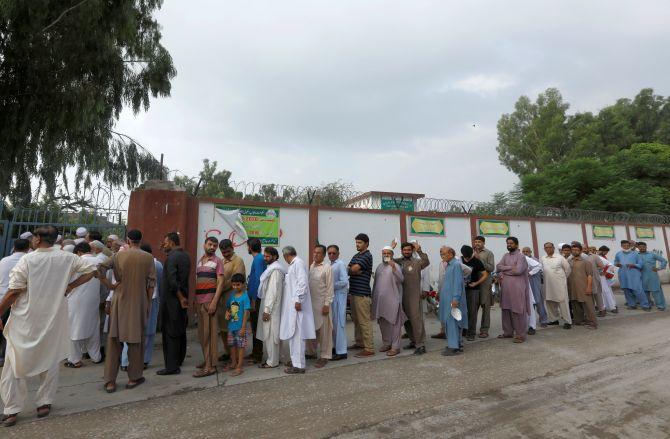Counting has begun for the election which will be the second democratic transition of power in the nation’s 70-year history.
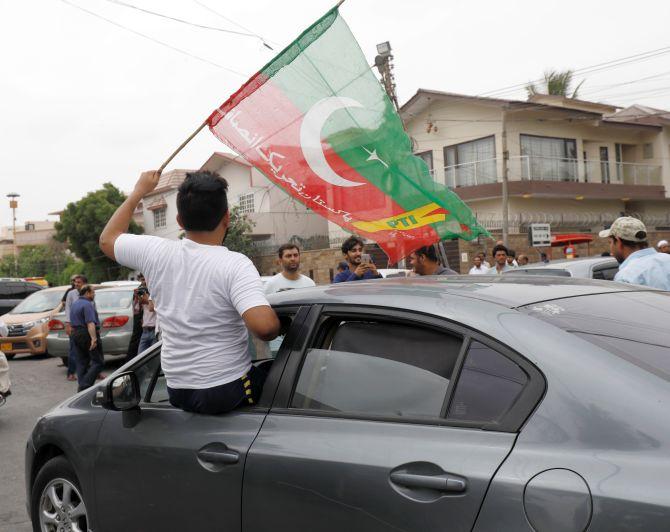
Pakistan’s flamboyant cricketer-turned-politician Imran Khan’s Pakistan Tehreek-e-Insaf was leading in 94 parliamentary seats while its main rival Pakistan Muslim League-Nawaz was ahead on 53 seats in the initial round of counting on Wednesday in an election marred by a deadly suicide attack and allegations of manipulations by the powerful military.
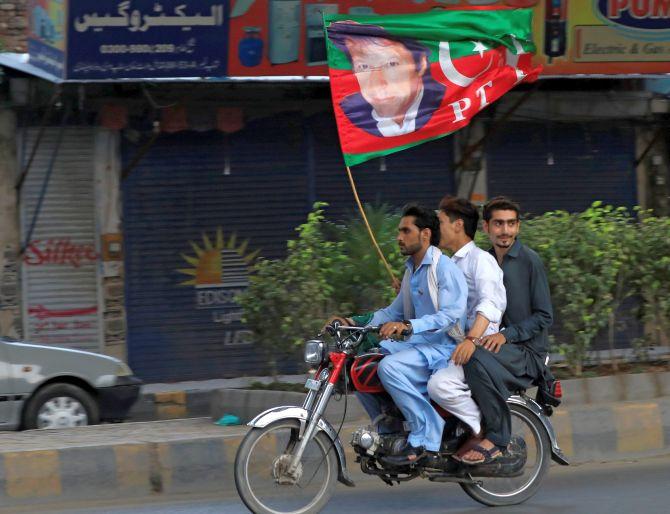
The Pakistan Peoples Party of former president Asif Ali Zardari was leading in 32 seats, a sign indicating that he could play a ‘kingmaker’ in case of a hung parliament, according to media reports.
Independents were ahead on 20 seats according to trends available for 230 seats out of 272 seats.

The Muttahida Majlis-e-Amal -- an alliance of traditional religious parties such as Jamaat-e-Islami led by Qazi Hussain Ahmed, Jamiat Ulema-e-Islam-Fazl headed by Maulana Fazlur Rehman, Jamiat Ulema-e-Pakistan led by Maulana Shah Ahmad Noorani and Tehreek-e-Jafaria led by Allama Sajid Naqvi -- was leading in 11 national assembly seats.
Pakistan’s National Assembly comprises a total of 342 members, of which 272 are directly elected whereas the rest -- 60 seats reserved for women and 10 for religious minorities -- are selected later through proportional representation among parties with more than five per cent of the vote.
A party can only form the government if it manages to clinch 172 seats in total.

PML-N chief Shahbaz Sharif, who is hoping to become the next prime minister, was leading with 4,230 votes in NA-249 (Karachi West-II), according to trends. PPP Chairman Bilawal Bhutto Zardari was leading with 5,218 votes in NA-200 (Larkana I).
According to the Election Commission, 3,459 candidates are in the race for 272 general seats of the National Assembly, while 8,396 candidates are running for 577 general seats of the four provincial assemblies - Punjab, Sindh, Balochistan and Khyber-Pakhtunkhwa. More than 30 political parties have fielded their candidates for the elections.
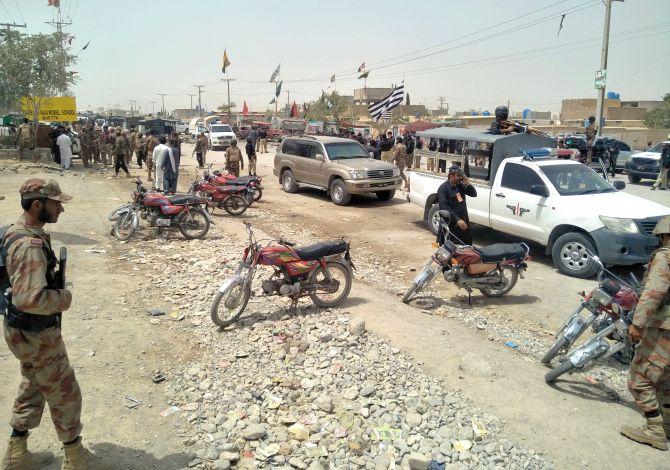
In the Punjab Assembly, PML-N and PTI were in a neck-and-neck fight with both leading on 54 and 43 seats respectively according to trends available for 119 seats out of 297 seats.
In the Sindh assembly, PPP was emerging as the single largest party in its traditional bastion. The party was leading on 31 seats according to trends available for 45 seats out of 131 seats. PTI was leading on five seats while PML-N was ahead on one.
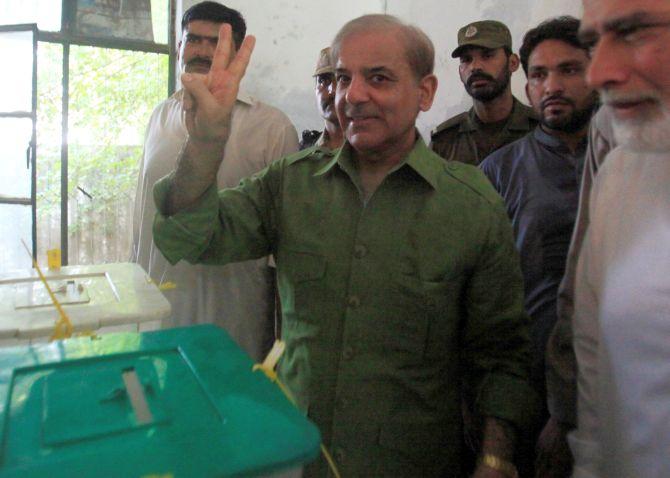
In Khyber-Pakhtunkhwa, PTI was leading on seven of 99 assembly seats.
Earlier, the voting ended at its scheduled time despite calls by several major parties, including PML-N, PPP and PTI, to extend the polling time by an hour. They had complained of “a slow voting process” and thus sought more time to facilitate voters - a request that was rejected by the Election Commission.
Hours after polling began for the general elections, an Islamic State suicide bomber blew himself up outside a polling station in Bhosa Mandi area of Balochistan’s provincial capital, Quetta, killing 31 people, including policemen.
In separate incidents, four persons were killed in poll-related violence. Clashes erupted between rival parties outside several polling stations, reports said.
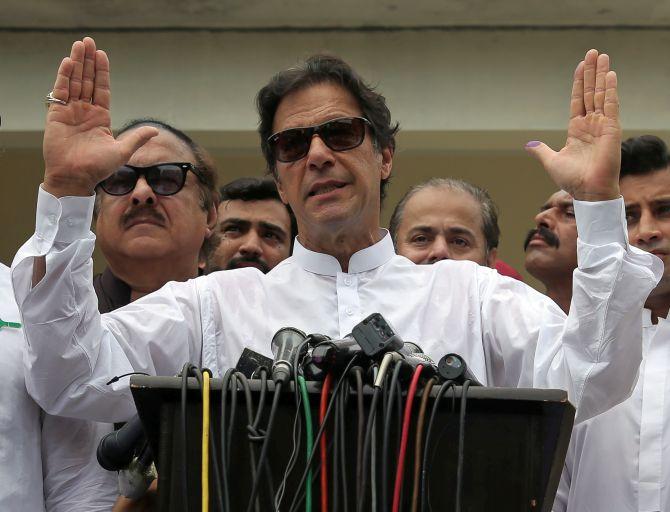
Nearly 10.6 crore people are registered to vote for members of the lower house of parliament and four provincial assemblies. The election marks the second democratic transition of power in the nation’s 70-year history.
While polling stations officially opened for voting at 8 am, enthusiastic citizens queued up outside their respective stations as early as 7 am.
For a smooth polling process, the ECP had deployed around 1.6 million staff at polling stations across the country. About 4,49,465 policemen and over 3,70,000 military personnel were deployed for security.
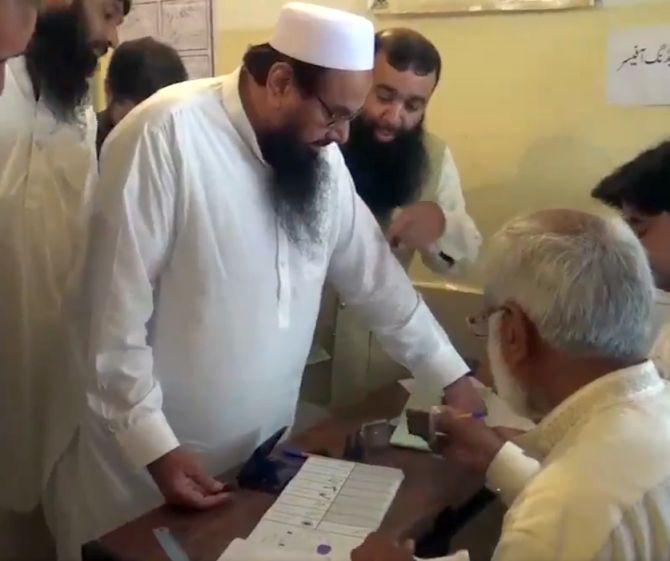
A public holiday was declared across the country on Wednesday in order to facilitate the voting process.
The run up to the elections has seen a massive crackdown on the media and allegations that the military has secretly backed the campaign of Khan while targeting his political opponents.
The military has ruled Pakistan through various coups for nearly half of the country’s history since independence in 1947. Even during the civilian rule, the generals have wielded enormous power, setting the agenda for the country’s foreign and security policies.

The ECP was also criticised for deploying the army both inside and outside of polling stations.
Former prime minister Sharif, the supremo of the PML-N who was jailed this month after being convicted in a corruption case, also accused the military of pressuring the judiciary to convict him. Both institutions deny the charge.
Controversy has also arisen over allowing militant groups to participate in the elections.
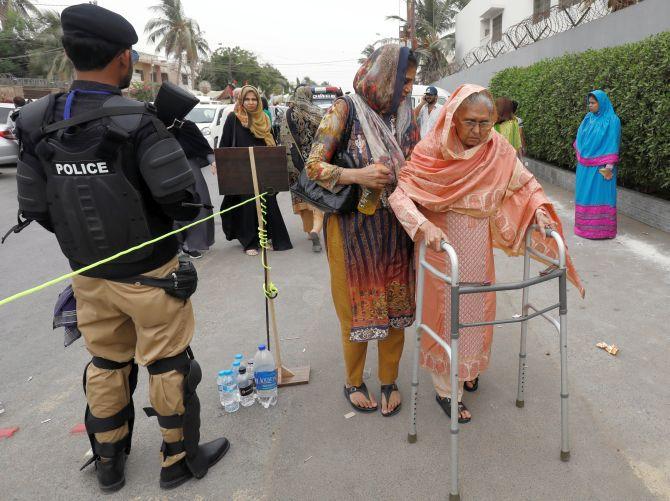
Some of the infamous Pakistani extremist leaders, accused of spreading religious hatred and instigating sectarian violence, are among hundreds of candidates contesting the elections.
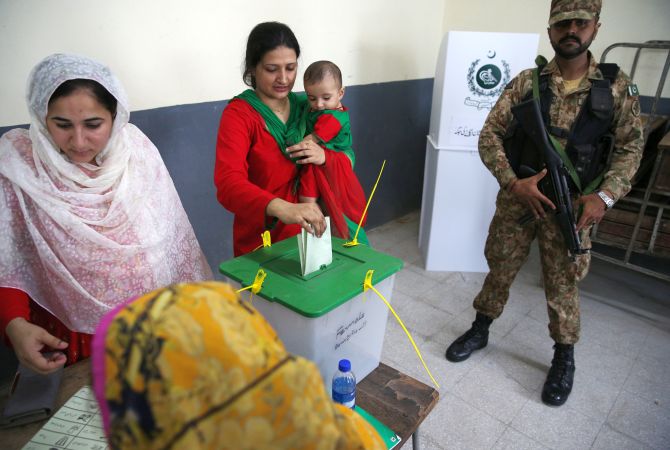
The leading among them are Mumbai-terror attack mastermind Hafiz Saeed-led banned Jamat-ud Dawa’s candidates who are fighting with an aim to make Pakistan a “citadel of Islam.” His party is leading in one constituency.
In the run up to the elections, the country also witnessed a series of deadly attacks targeting candidates and campaign rallies, including one that killed 151 people in Balochistan.
